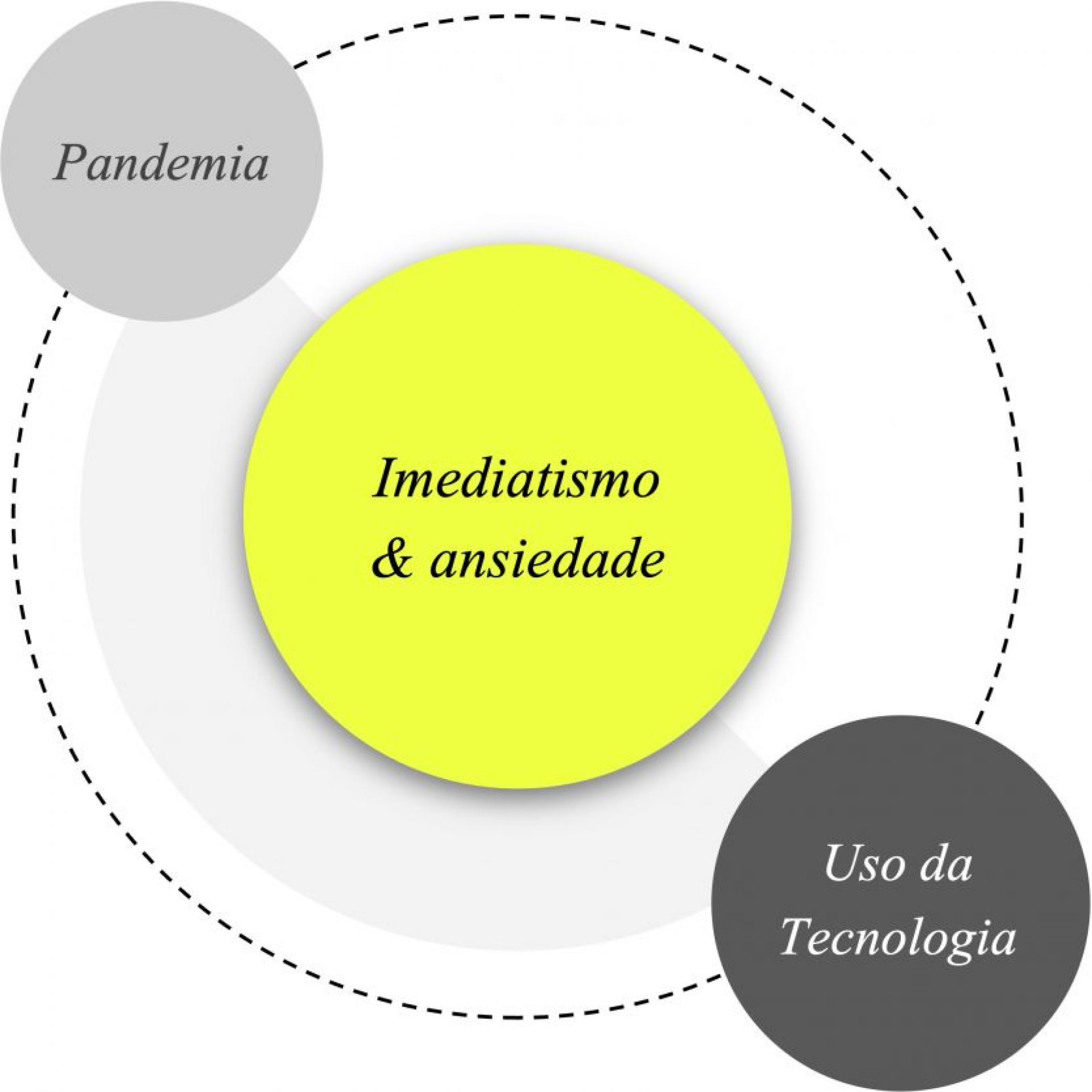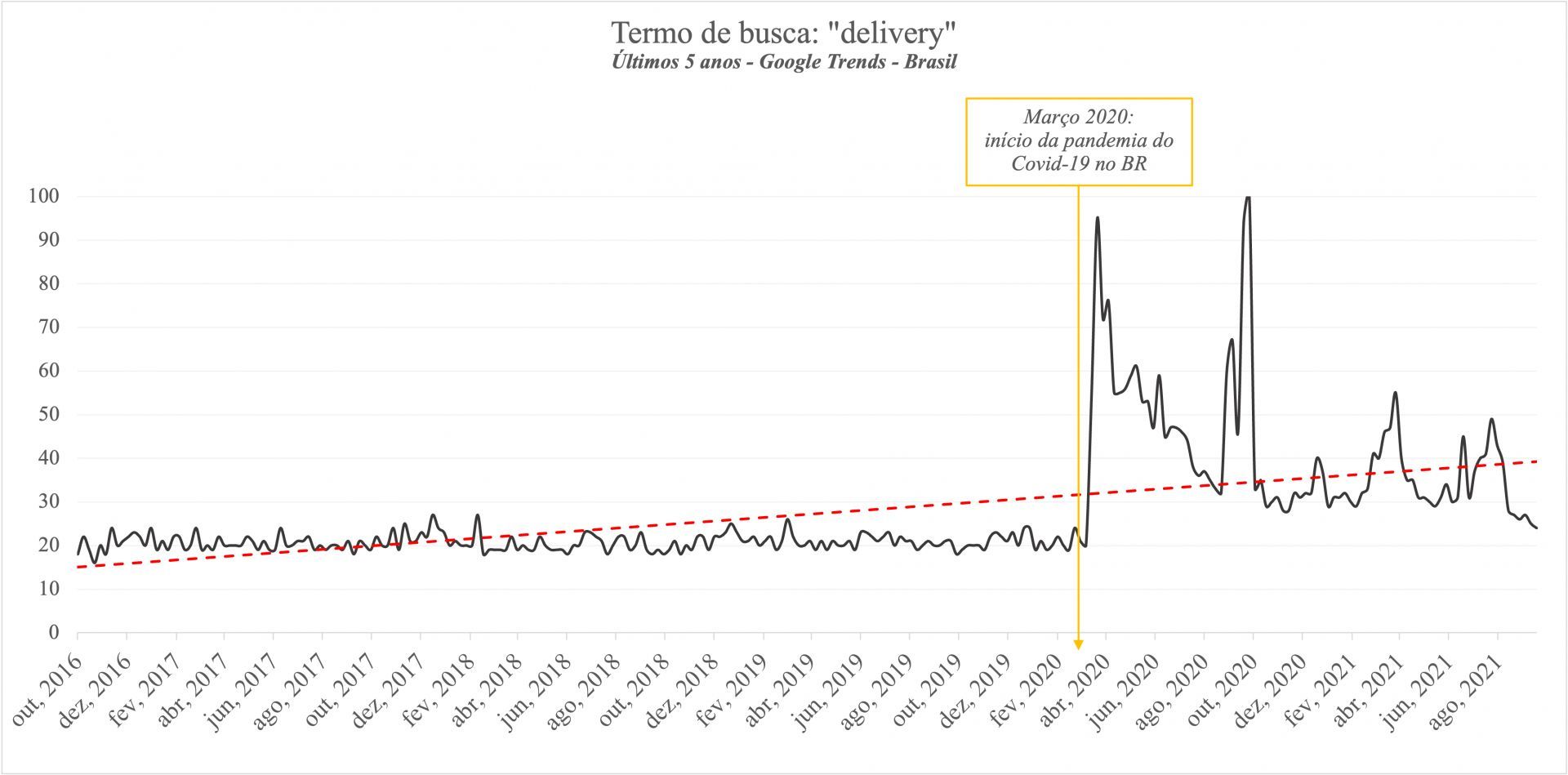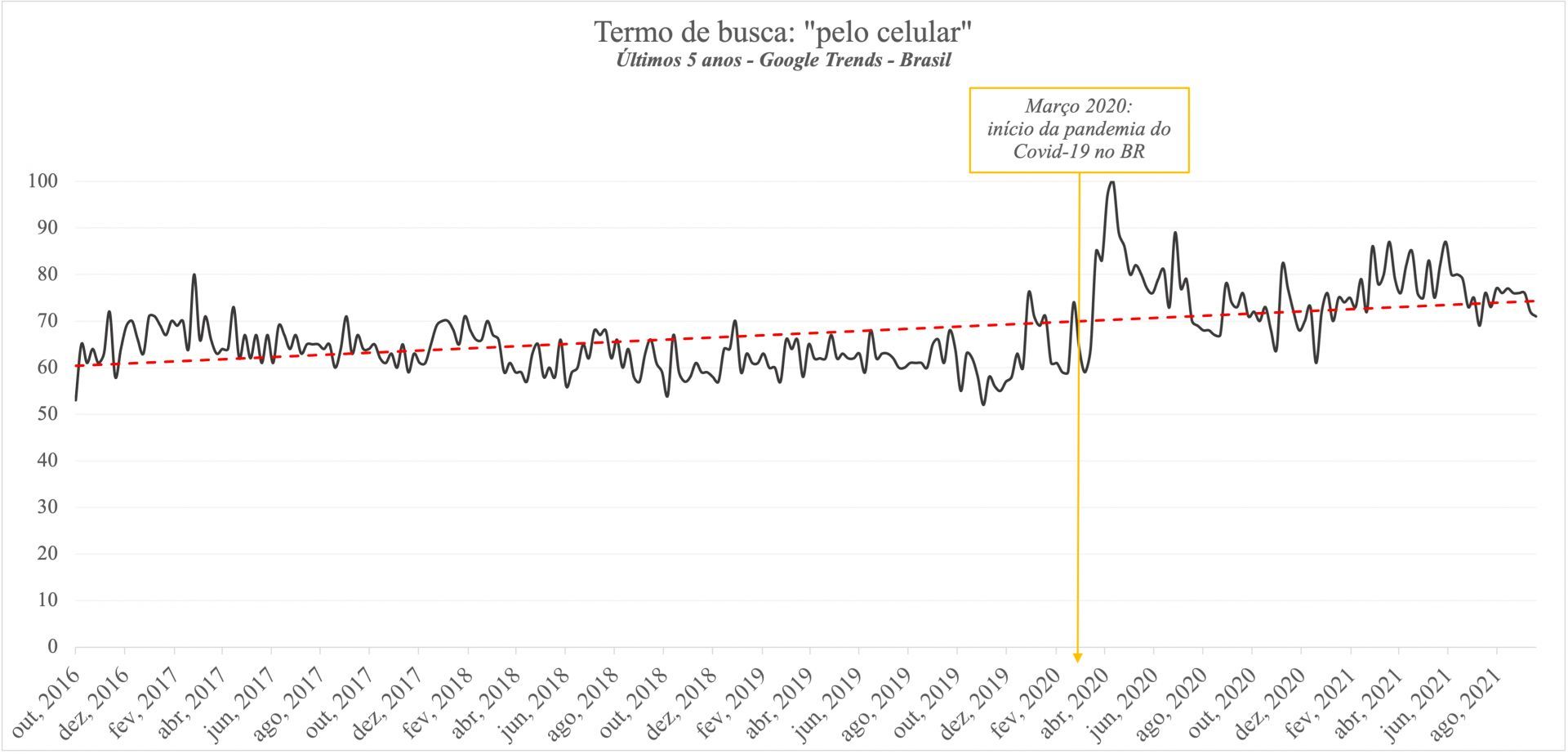Should technology respond to us or understand us?
by Mariana Gouveia
Oct 7th, 2021 » 2 min (brands) (consume) (customer) (pandemic) (post-pandemic) (service)
How long do you think you could go without checking the status of your order after you complete it? And without checking if a notification arrived on your cell phone after sending an important message? How long are you able to wait on the phone to be answered by a telemarketing operator when you have a consumer service problem?
It's been a while since technology has held us hostage to an age of fast responses, but this pandemic has made us dependent on technology like never before. The blackout of Facebook, Instagram and WhatsApp on October 4th, 2021, and its impacts on business and people is an iconic example of how dependent we are (and the problems of a monopoly). This is the cycle that feeds our anxiety. And that's why both have so much in common and reinforce each other in this construct and direction.

Average searches for delivery on Google increased by 99% after the pandemic.

The searches for the term "on the cell phone" increased by an average of 21% after the pandemic.

But, this excessive use of technology has also made us "crash" more than Windows 98 did, and realize how the lack of it, sometimes, is what we need most. Don't you get it? Ok, I'll explain you. BOT, ROBOT, ELECTRONIC SECRETARY, AUTOMATIC MESSAGE, ARTIFICIAL INTELLIGENCE, AND AUGMENTED REALITY DIGITAL INFLUENCERS that give you support when you have a problem with a brand or service… ok, ok, I’m gonna stop.
The reflection I bring is exactly about the need – or lack of – of humanization that we feel during the frenetic wave of quick responses imposed by the exaggerated use of technology. Technology has oversimplified, in a way, in terms of speed and fluidity, but it leaves us hostages to what us, human beings, have as the most valuable: the sensibility and potentiality to understand ourselves.
That's why it is necessary to have people behind the brands. And also behind technologies.
Companies need to transform their information into actions that generate positive impacts, rather than encourage anxieties and new addictions. And this is only possible when you unite forces among people, data, and empathy.
When it comes to customer service, dealing with the clients is much more than just responsive (aiming for an SLA KPI) or exceptional (NPS KPI). It's about understanding first, to then serve in an agile and exceptional way. And understanding is related to the comprehension, grasping, feeling, and perceiving. In other words: being sensible.

Technology needs to act as a means rather than as a process for providing a good service for brands with current consumers. It needs to provide us with actionable data that makes the flow easier to navigate and creates quick responses between processes.
Therefore, before thinking about service automation and customer service automation, brands should think about the pains their consumers have. Their journey. The yearnings. It is important to understand, and then respond to it.











